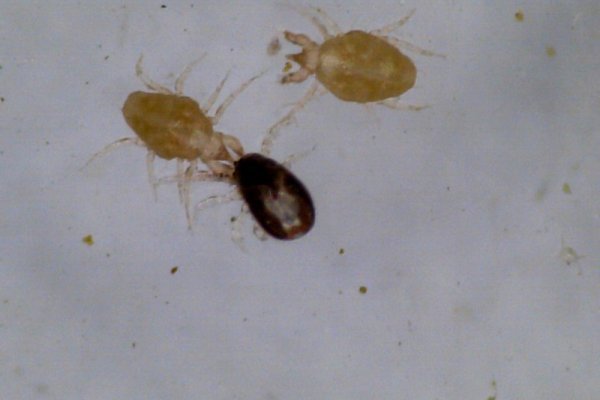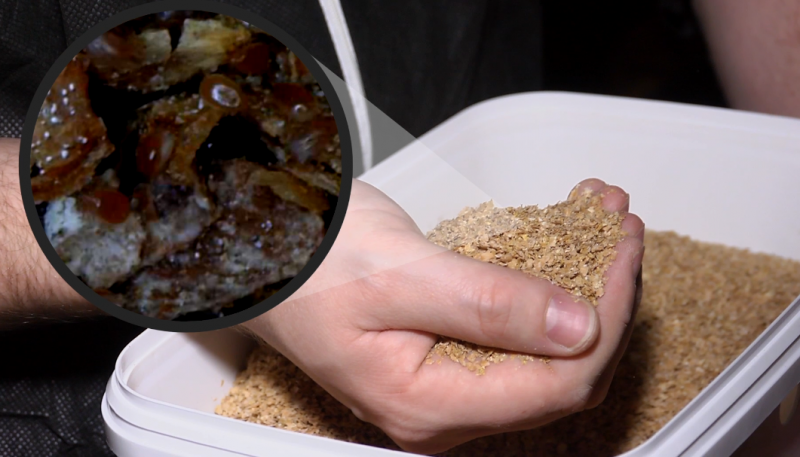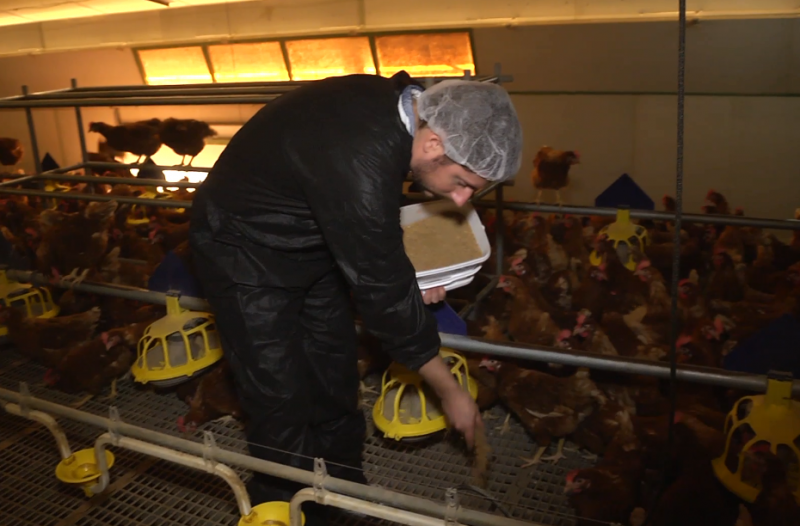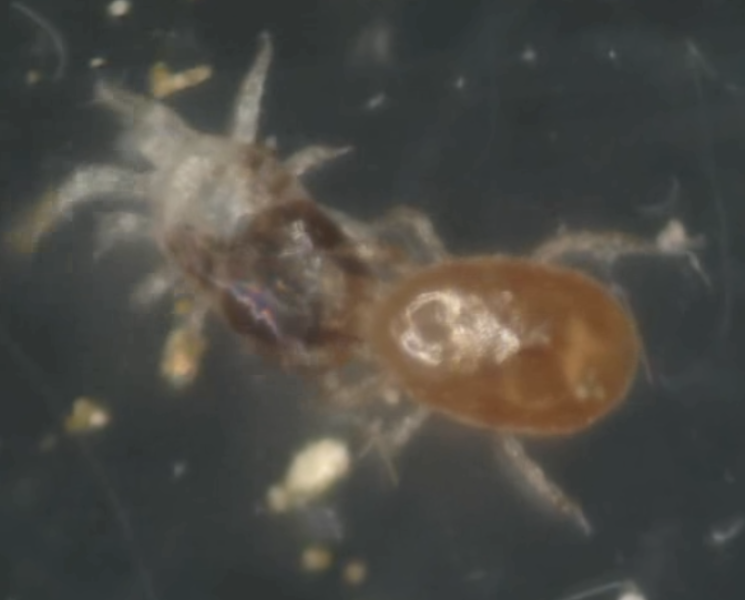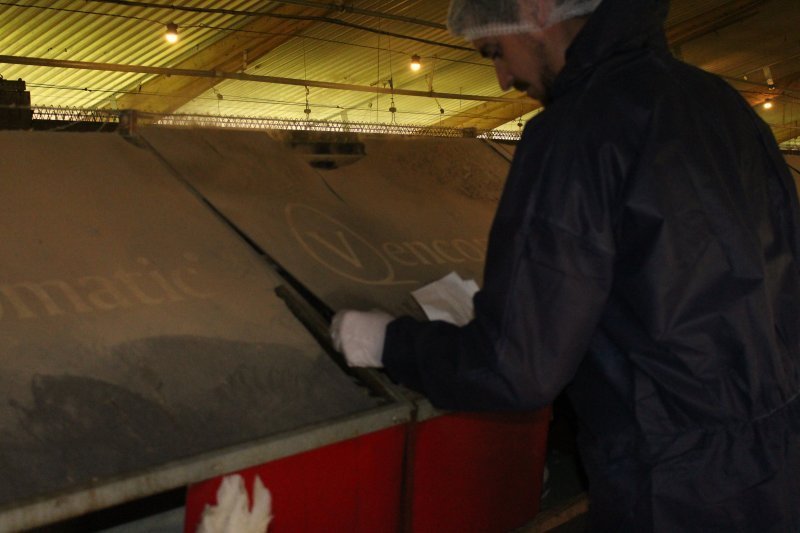Androlis Pro and Taurrus Pro kit
The Androlis Pro and Taurrus Pro predatory mites are implanted in the farm to prevent and counter red mite populations. The first releases must be made quickly after the hens have been placed in the building. Androlis Pro and Taurrus Pro buckets are used in combinations called Kits. We use 1 kit for 1500 hens for a complete release. After the first complete release, half releases can be carried out regularly at the rate of 1 kit for 3000 hens. Upon receipt; open the buckets and distribute the predatory mites contained in their substrate by hand. Spread these on the gratings, in the nests and on the resting areas of the hens (perches and borders).


